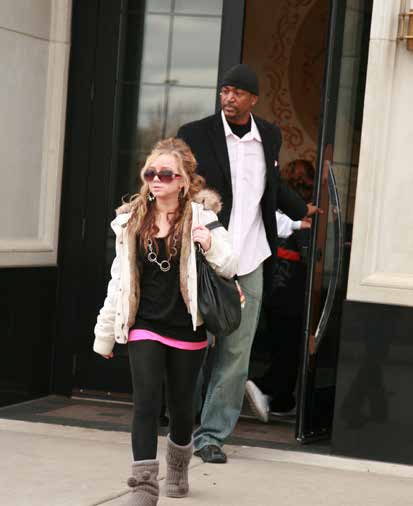As an Executive Protection Professional you might find yourself working with a variety of age groups, and as those who have done it can tell you, working with children and teenagers in any environment can be both rewarding and challenging.
It presents challenges which will vary depending on the person’s age, background, and lifestyle. Your own personal comfort level will also factor into the equation as well, to be sure. The child’s age and comprehension will determine how much direct interaction you will need to have with them and how much feedback (and sometimes grief) you will receive from them in return. For most people, the most difficult ages are in the 11-17 range. Those in this age group typically crave acceptance and attention, will often strive to fit in with their peer group, but yet they develop a myriad of personality traits that very much makes them an individual.
They seemingly always have to have some kind of stimulation (i.e. video games, electronics, sports, social events, etc.), and have a natural curiosity of their surroundings. This curiosity will inevitably include you if you work with (or for) them in any capacity. Some of them will like the attention while others will resist your presence in their lives. Most children and teenagers have the mindset that the world revolves around them anyway, and have a tendency to encroach on personal boundaries, which makes some people uncomfortable. It helps to realize that they will probably point out your flaws and shortcomings at some point, but it’s not about you, so don’t take things personally. If you are not sure what your flaws may be, you may be in for a surprise. Remember, don’t take it personally.
Young people of all ages think very much “in the moment” and their attitude can change based on their situation. Things that adults perceive as being no big deal can seem like a life altering experience to them. They also may not have the emotional self-regulation skills to maintain control during these real or perceived threatening situations, and should not be looked at simply as smaller adults. For some, thoughts of the future do not exceed more than a few hours ahead. Social media, sports teams, and peer groups often define their reality more so than what we consider the “norm”. What is important to you may not be important to them, but learn to at least be aware of their realities. Likewise, what you recognize as dangerous behaviors, may not garner a second thought, or even a flinch of hesitation, from them. Taking advantage of any opportunity to show an interest in what they do can give you greater influence over reducing these behaviors. Anything that helps you connect with them will be of benefit to you when you need their cooperation, for example, quickly embussing into a vehicle during a movement.
Establishing trust is as important with them as it is with adults – perhaps even more so. When they trust you, they will do whatever you ask. It also helpful in gaining their cooperation to ask for their compliance (“could you….” or “would you please….”), rather than demanding that they do what you say. No one likes to be told what to do, and that does extend to naturally defiant kids and teenagers. While you are not their parent, you will likely be seen as some kind of authority figure, and approaching them in the wrong manner can make your protective assignment that much more difficult. Sometimes working with this age group can seem like more of an art than a science. Also, be aware that children will see and hear more than adults give them credit for. They notice everything about you, including your attitude.
If you act like you don’t want to be there, they notice. If you are lax in your expectations, they notice. If you ignore them when they don’t want to be, they notice. Understand the concept that to them, even negative attention is sometimes good attention. Model the kind of behavior that you want to see from them, and they will usually return it. All kids need some kind of structure and usually function better with routine and consistency. That doesn’t necessarily mean having the same travel routes or the same daily schedule, but it does refer to being consistent with your expectations, and not to confuse them with wildly different expectations for different settings. Many young people will have a certain amount of self-imposed chaos and drama in their lives already, and any perceived outside addition, whether it’s real or imagined, may exacerbate those feelings. For Executive Protection Professionals, I suppose it’s fair to say that working with young people can be more an art than an exact science and through patience and understanding, our plan is to get straight “A’s”
By: Jason Poston
Jason Poston, CAS, PPS, LCSW, CSAC, is an Executive Protection Professional as well as a licensed mental health and substance abuse therapist, and a former Juvenile Probation Office/Gang Specialist and mentor, with over 10 years combined experience working with youth and young adults in outpatient counseling centers, in-home counseling programs, and residential behavioral and substance abuse treatment centers.


Leave a Reply